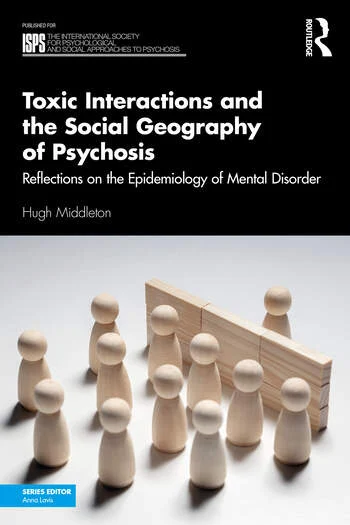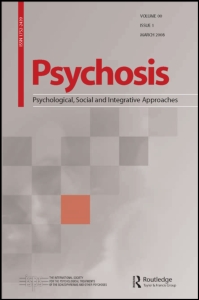Report from the first ISPS conference
September 7, 2012 2012-09-07 17:39Report from the first ISPS conference
By John Read
For most attenders of the wonderful Melbourne congress the following week was a return to normality. For many New Zealanders who made it over to Australia, however, the fun (and exhaustion) continued for a while longer. We took the opportunity to kidnap three important Melbourne speakers and build a satellite conference around them in Auckland.
It was a genuinely magnificent two days. (But then I would say that, I organised it.) Nearly 200 psychologists, psychiatrists, and other mental health professionals enjoyed a great mixture of approaches to ‘making sense of madness’. We were pleased to include two presentations from users of mental health services. Jim Burdett, who had presented his philosophy groups, in Melbourne persuaded most of us that when we work towards recovery the notion of ‘a life worth living’ is an invaluable framework. Gary Platz (our token Wellington person) gave us a gripping, sad and entertaining account of his personal journey back to himself, despite the help of mental health services. The turning point for Gary came when he asked his all powerful voices for advice and they told him he was the best judge of the way forward. (So Carl Rogers is God, after all).
The conference began with a formal Maori welcome from the tangata whenua (people of the land) to our overseas guests. This is always a scary time for the person in my role, who is expected to respond – in Maori. As usual one of my Maori students came to my rescue and prepared something for me to memorise. Later in the day Sharon Rickard, a Maori psychologist who works with her people to help them through psychosis, presented ‘Maori models of madness’. Often, but not always, Maori who hear voices are receiving messages of advice, support, warning or admonition from their ancestors. What a shame that we Pakeha (Europeans) primarily understand intergenerational concepts only via our simple genetic theories. (Perhaps I am just scoring a point against our Australian colleagues after our nation-traumatizing defeat at the Rugby World Cup, but it did seem odd that there were no Aboriginal speakers in Melbourne. We would probably have learned a lot).
By far the craziest presentation was by two psychiatrists. They covered several thousand (or was it million ?) years in 25 minutes when presenting an evolutionary perspective on psychosis. It was breath taking – literally. We were truly fortunate to have two such brilliant and committed psychiatrists, Thom Rudegeair and Suzie Farrelly, with us.
Psychologist Jim Geekie presented, as he did in Melbourne, his research into how people who experience psychosis make sense of those experiences. Yet again he reminded us that we fail to inquire about this at our peril – and all too often at the peril of our clients. Kirsty Agar summarised her survey of users of an inpatient unit about what they need when in crisis. Her research will feed into the design of a Soteria-like house in Auckland. We were also reminded of the research on gender, class and ethnicity issues in relation to psychosis, by three clinical psychology postrgraduate students, Melissa Taitimu, Angus Maxwell and Vanessa Beavan.
And all that before even mentioning our three kidnapped keynote speakers! The New Zealand Mental Health Commission had brought over Courtenay Harding (Boston University) to give some lectures about her research on long-term outcomes, in support of the ‘Recovery Model’ that is gradually taking hold down here. We seized the opportunity to have her sustain our sense of optimism and she did it superbly. Thankyou Courtenay.
Richard Bentall and Tony Morrison (Manchester, UK) not only gave stunning keynote addresses on cognitive approaches to understanding psychosis, they each gave a half day workshop to 190 people. No mean feat ! Imagine a lecture theatre full of nearly 100 conversations in which one person is challenging a deeply held core belief of the person sitting next to them. Apart form learning a lot of valuable skills, it was a lot of fun. Every time I had to pop out to deal with some administrative task, the laughter from inside let me know things were going well.
Richard’s wonderful new book Madness Explained: Psychosis and Human Nature (Penguin, 2003) and Tony’s more antique A Casebook of Cognitive Therapy for Psychosis. (Routledge, 2002) were on sale and sold out. Richard did really valuable interviews for our national radio and newspaper. Tony, sadly, is media phobic – but that’s understandable when you are a Manchester City fan.
Just about everybody availed themselves of the free ISPS membership offer, to kick-start the Australian/New Zealand branch. So for a while at least we might out number Australian members!
All in all it made me very happy to see so much enthusiasm among so many great people – just as had been the case in Melbourne a few days earlier.



